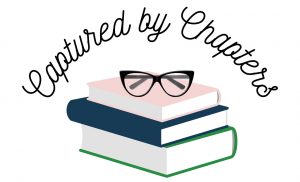Black Brother, Black Brother by Jewell Parker Rhodes has been on my radar for a lonnnnng time. I am so beyond thrilled I read it and I’m STILL thinking about this book weeks after I finished it. Don’t dismiss this young adult book as a lightweight. It may look small in page count, but it. packs. a. PUNCH!

Set Me Up
Donte and his older brother recently started Middlefield Prep, a mostly white private school. Donte takes after his Black mother’s skin tone; Trey takes after his dad’s white skin tone. Donte is known at Middlefield as the ‘black brother.’ Trey seems to blend in, make friends and has assimilated quite easily to the new school. Donte, however, is having a much harder time.
We meet Donte as he is in the principal’s office (yet again) for something he had nothing to do with. It appears that Donte is not only not welcome, but he’s being set up to look like a fool and a rule-breaker.
The school-to-prison system is very alive in our country, but Black Brother, Black Brother really takes the reader into a first-person narrative in the system.
What Else Is At Play?
So we clearly have priveleged white kids and a black student being targeted. Add in that Donte and Trey’s parents do very well for themselves; the boys don’t receive assistance to attend Middlefield. Why I bring this up is become socio-economic status plays into this book as well. Something as a white person I’m very aware of, but again, as Donte continues to be targeted, people make assumptions very quickly. It’s uncomfortable.
Donte is escorted out of school by police (parents were not even called) and we walk along with Donte and his parents as they work with the legal system. It helps that Mom is a lawyer by day, so we see a special perspective at play.
“Mom’s lips thin. I see her thinking: Easy to stereotype kids of color. Especially easier to stereotype poor kids of color. Unfair bias.”
An Outlet
Donte has some free time on his hands with his suspension and finds himself at the Boys and Girls Club with fencing on the brain. He understands that Olympic fencer Arden Jones coaches there and who better to work with Donte than a fellow Black man who understands the kind of obstacles Donte is shouldering?!
Coach very reluctantly takes Donte on as a student and soon other students get pulled into the fold. What starts as simply an outlet for all this anger and tension becomes an incredible sport for Donte and his peers.
So We Meet Again?!
When Donte’s fencing team (very, very much the underdog here) with the Boys and Girls Club compete in local competitions, they are competing against none other than Middlefield Prep – led by one of the monsters who coordinated the trouble for Donte in the first place.
Another Layer
So we have race at play. And socio-economic factors, too. Layer on access now. Fencing isn’t available just anywhere – only places that have a lot of money. So there are populations of untapped talent for fencing (and other sports) not because of skills, but access.
“Why around here are fencers mainly white?” asked Trey.
“Racial bias. But class bias, too. Public schools don’t offer fencing. Private schools do.”
“Like lacrosse. Trey and me never knew the sport existed until we started private school.”
“Yeah, like water polo, too.” Trey nods.
“Segregated pools kept generations of inner-city kids from swimming,” adds Coach. “I still don’t know how to swim.”
A Gem
Black Brother, Black Brother is truly a gem! This is such an incredible book that speaks to privelege and bias in such a beautiful way. It’s right in front of you as the reader but it feels like it’s almost secondary at times…even though it’s the very current creating frustration and lost opportunity and trauma for Donte. How this author does it, I dunno, but I LOVED this book!
Here’s the next book by the same author on my radar:

